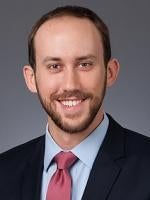Yesterday, the Supreme Court issued a unanimous decision holding that the scienter element of the False Claims Act (“FCA”) is met if a defendant subjectively knew his or her claims were false and submitted them anyway. See United States ex rel. Schutte v. SuperValu Inc. and United States ex rel. Proctor v. Safeway. The Court’s ruling was narrow and avoided the more challenging—and common—issues raised during oral argument (which we previously discussed here).
Background
The FCA is a qui tam statute that imposes liability upon any person who, inter alia, knowingly submits a false claim to the government. See 31 U.S.C. § 3729. The FCA defines “knowingly” to mean (1) actual knowledge, (2) deliberate ignorance of the truth or falsity of the information, or (3) reckless disregard of the truth or falsity of the information. Id.
In the underlying Seventh Circuit cases, relators alleged that retail pharmacies had knowingly submitted false reports of their Usual and Customary (“U&C”) drug prices to the government for reimbursement under Medicare Part D and Medicaid, because the reports allegedly did not account for discounted drug prices offered through certain prescription drug price-matching and membership clubs. Ultimately, the Seventh Circuit determined that (i) legal standards were ambiguous as to whether prices afforded through such discount programs affected U&C prices, and (ii) because the pharmacies’ conduct was objectively reasonable in light of that ambiguity, there was no need to examine evidence of their actual knowledge at the time of claim submission.
The Opinion
The Court emphasized the narrowness of its holding; it “granted certiorari … to resolve [the] legal question: If respondents’ claims were false and they actually thought that their claims were false … then would they have ‘knowingly’ submitted a false claim within the FCA’s meaning?” The Court found the answer “straightforward: The FCA’s scienter element refers to respondents’ knowledge and subjective beliefs—not to what an objectively reasonable person may have known or believed. And, even though the [regulatory] phrase [at issue] may be ambiguous on its face, such facial ambiguity alone is not sufficient to preclude a finding that respondents knew their claims were false.” Thus, the Court reversed the circuit court, finding that a FCA defendant “could have the scienter required by the FCA if they correctly understood [the regulation] and thought that their claims were inaccurate. … Thus, if [Defendants] correctly interpreted the relevant phrase and believed their claims were false, then they could have known their claims were false.” The Court also characterized the meaning of “reckless disregard” to include, but not be limited to, those “who are conscious of a substantial and unjustifiable risk that their claims are false, but submit the claims anyway.”
Consequences of the Decision
As a result of this decision, companies in regulated industries, and those that do business—directly or indirectly—with the government should consider documenting subjective beliefs held contemporaneously with the related actions, particularly those beliefs tending to show that the company’s actions were taken in good faith, whether in reliance on the opinion of an expert or otherwise. Such documentation could prevent or abbreviate investigational scrutiny and mitigate FCA disputes down the road.





 />i
/>i
